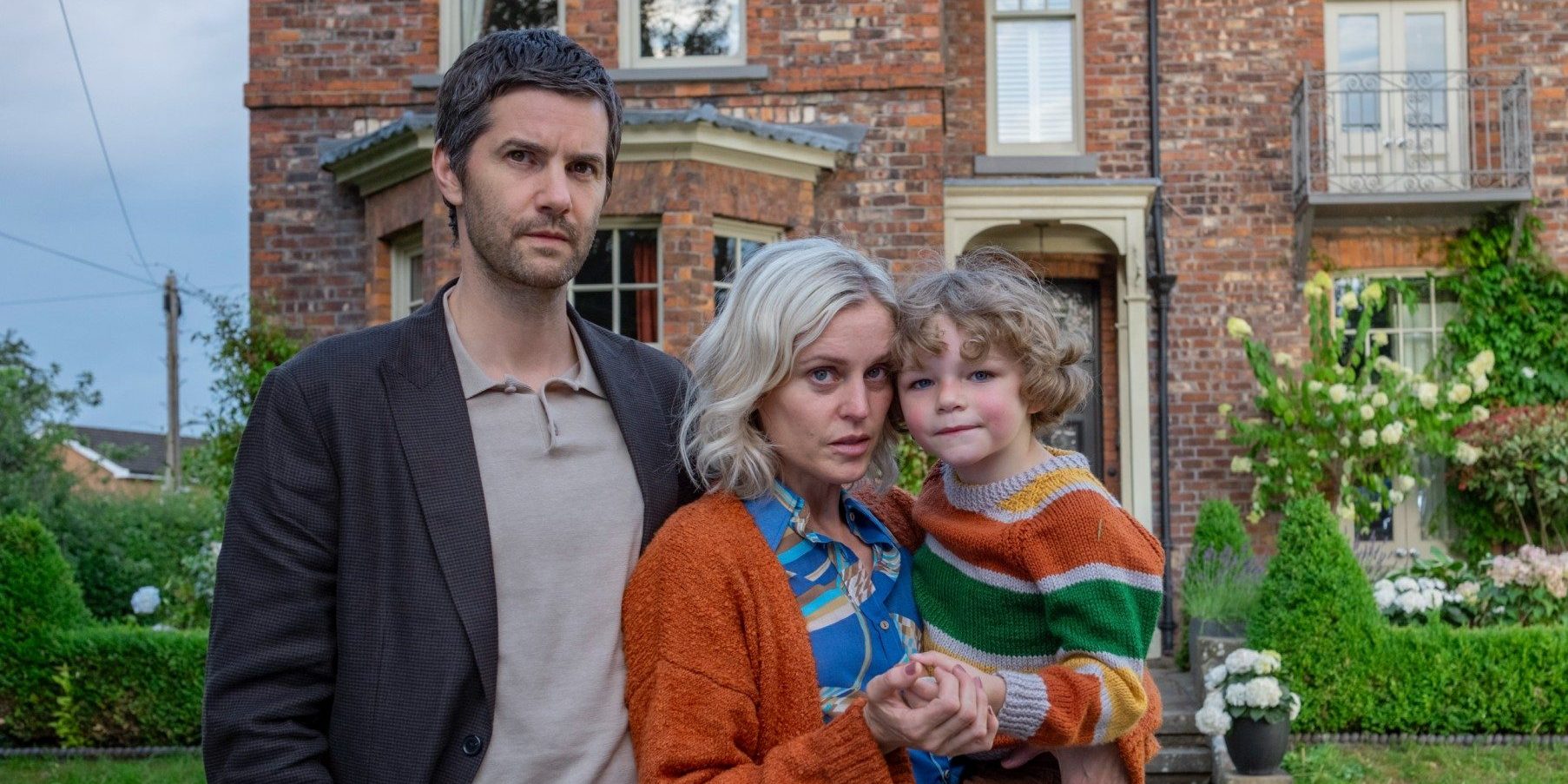Based on Alex Dahl’s compelling novel ‘Playdate,’ Freeform’s ‘The Stolen Girl’ begins with an agonizing yet compelling first episode that hooks you instantly. From the opening frame to the final moment, a palpable sense of intrigue and paranoia permeates every scene. Though she appears only briefly—and in two versions of the same haunting moment—the narrative’s emotional and psychological core is undeniably Lucia Blix, better known as Lulu. Why is she taken? Who exactly is Rebecca Walsh? And most importantly, who is behind it all? The first episode sets the perfect foundation for the twists and revelations that lie ahead in the season! SPOILERS AHEAD.
A Mother’s Small Decision and the Night That Changes Everything
From the moment ‘The Stolen Girl’ opens, a sense of dread creeps beneath the frame—ominous music, a car winding through a mountainous path, and a young girl trapped inside its trunk. This haunting image becomes the foundation upon which the rest of the first episode unfolds, unraveling an ordinary day into a nightmare no parent wishes to live. The woman at the center of this unraveling is Elisa Blix—an organized, composed flight crew member and a loving mother. While working, she juggles her professional obligations with the responsibilities of parenting. Her daughter Lucia, also known as Lulu, wants to spend more time with a new friend, Josephine Walsh, and as Elisa balances timeliness with motherhood, she makes a seemingly harmless choice: allowing Lucia to stay over for a couple of hours at her new friend’s house.
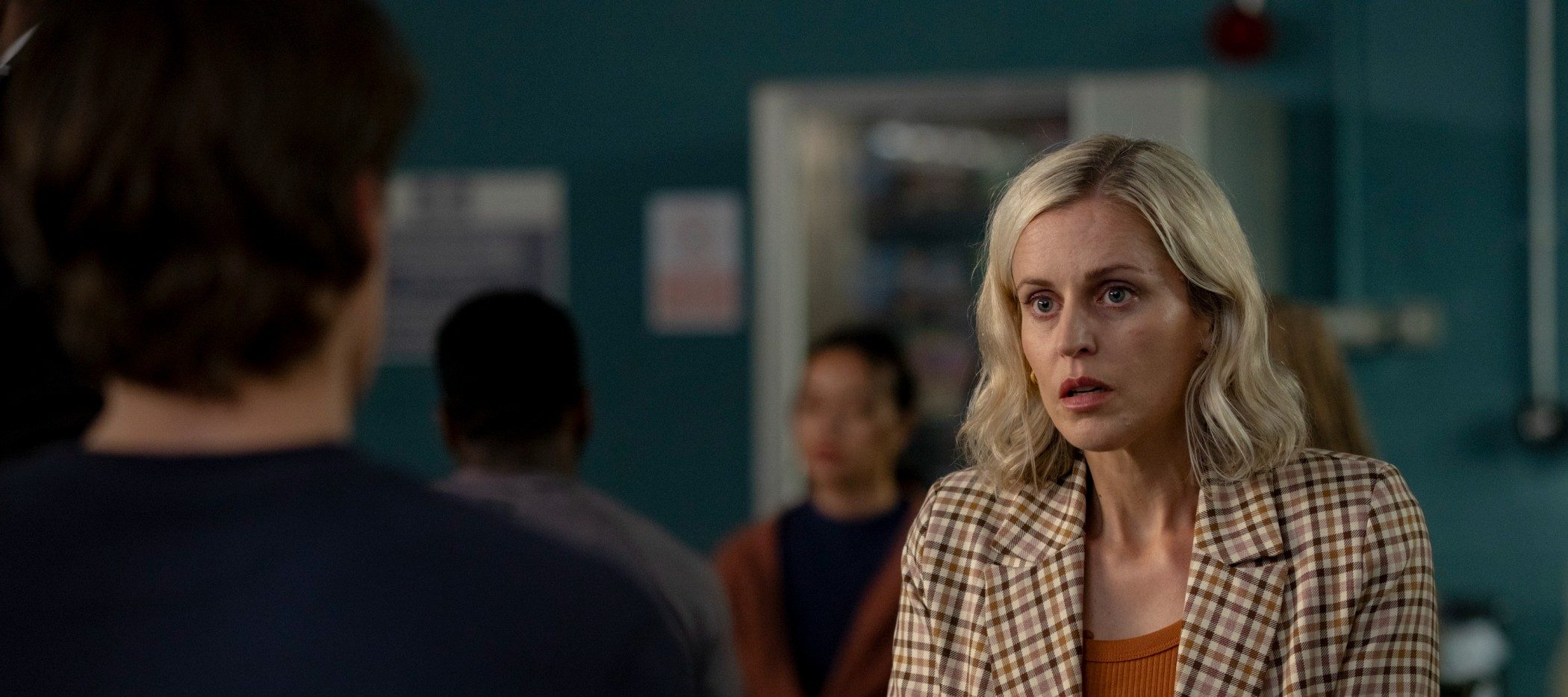
That decision, made in a hurry, turns catastrophic. Rebecca Walsh, Josie’s mother, enters the story as warm and welcoming, if slightly peculiar. Her overly stylized house and kombucha hospitality put Elisa slightly on edge, but there’s nothing glaringly wrong. When Lucia calls from Rebecca’s phone requesting a sleepover, Elisa hesitates but eventually agrees to drop off the former’s things and let her stay. The scene seems domestic, even mundane—two girls dressed as butterflies, excited for a night of fun. That snapshot of innocence is shattered when Lucia doesn’t return the next morning.
Rebecca doesn’t answer calls, and her number is suddenly withheld. Fred Blix, Elisa’s husband and a criminal lawyer, becomes involved, though he doesn’t even have Rebecca’s address. It’s Saturday—no school staff around to help. When they finally reach Rebecca’s house, a cleaner tells them it’s a holiday rental and no one lives there. Reality crashes in. Lucia is gone, just like that. What follows is Elisa’s slow, suffocating descent into panic and disbelief. She breaks down in her husband’s arms. Her measured demeanor collapses into a mother’s raw, guttural grief. All because of one small decision made in a moment of trust—a decision every parent has made at some point.
The Media Frenzy and a Desperate Plea to the Unknown
Once the police are involved and the media scent blood, the intimate tragedy of Lucia’s disappearance is consumed by a public spectacle. Detective Inspector Shona Sinclair steps in to lead the investigation. Lucia Blix is now a missing person. Her name and image flash across news bulletins, and the press swarms the scene, amplifying the chaos instead of helping it. There’s an almost unbearable moment when Elisa, completely broken, pleads through the cameras directly to Rebecca—“Don’t hurt her.” Her voice cracks, her hands tremble, and yet, she stands there hoping the abductor might be watching. It’s a primal kind of vulnerability, one that turns viewers from mere spectators into silent participants in her grief.
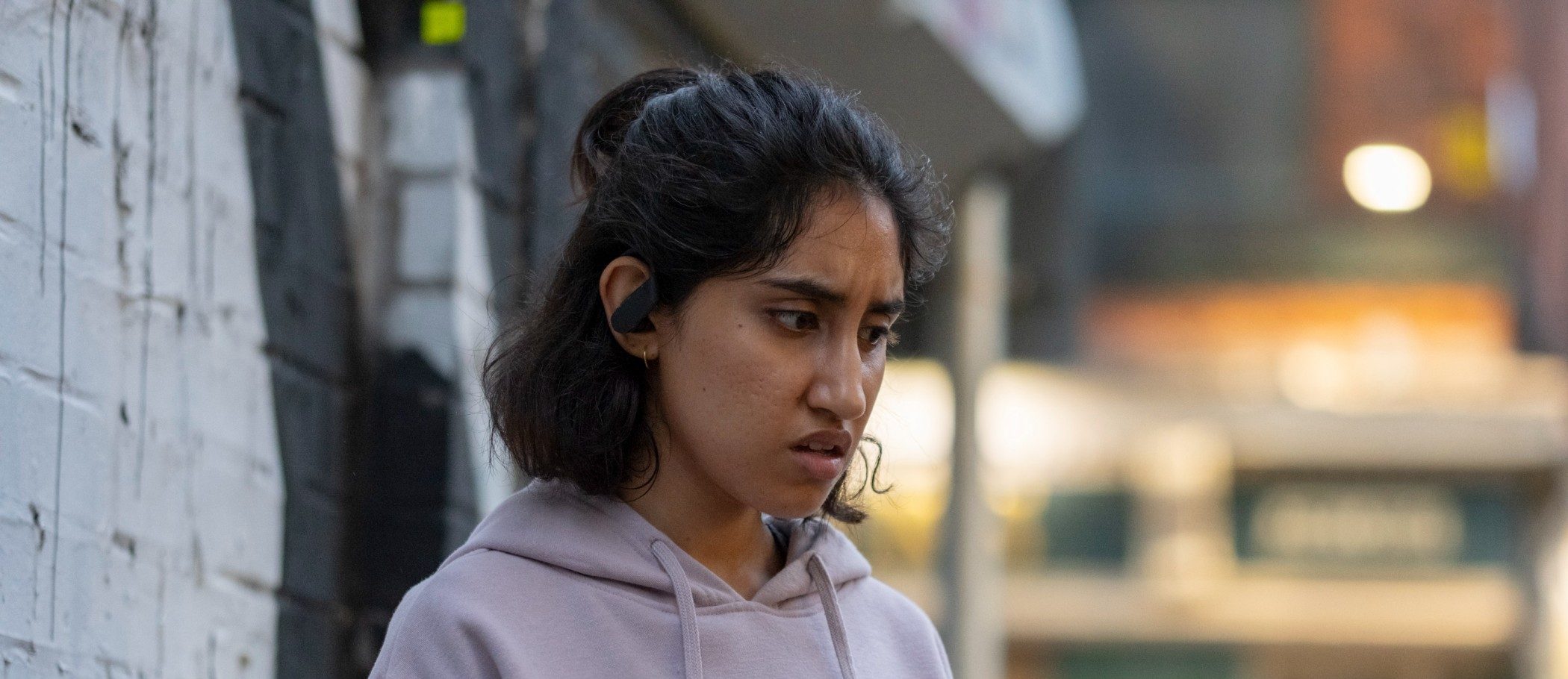
The show smartly captures the media’s ability to both illuminate and interrogate. Journalist Selma Desai’s question—“Why Lucia? Why you?”—is less about journalism and more about provocation. It cuts deep. This implies that there can be a reason why Lucia is chosen. A punishment? A message? Elisa’s expression hardens, not with suspicion, but with the growing weight of a mother’s internal self-blame. Even as the case develops, Elisa and Fred try to maintain a sense of normalcy for their son, Georgie. But he finds out through the news that something has happened to his sister, sparking more tension.
Inspector Sinclair advises against bringing Georgie into the media storm, but Elisa insists—it’s her way of coping, of trying to keep her fractured family somewhat intact. This further strains their already crumbling dynamic. The show never loses focus on how isolating grief can be, even in the public eye. While the press reports and speculates, Elisa is left to cling to memories, hoping her child is still alive. It’s not just about solving the crime; it’s about surviving each moment until the truth comes out. And right when it all seems emotionally overwhelming, we’re reminded of the haunting opening shot: Lucia trapped, her small fists thudding against a trunk, her voice trembling as she asks her captor, “Who are you?” It’s the only thing that matters now—who has abducted her, and why?
The Cracks Beneath the Perfect Family
What ‘The Stolen Girl’ does brilliantly is peel away layers—not just of the mystery, but of the family at its heart. As police dig deeper into the disappearance, they request access to the Blix family’s digital lives—emails, social media accounts, and private messages. Elisa complies immediately, but Fred hesitates. It’s a subtle pause, but enough to raise eyebrows. In private with his wife, he confesses: there was a woman. Her name was Sarah Banks. He claims nothing happened, but their messages suggest otherwise. Their affair may have ended over a year ago, but Sarah’s final words are haunting: “Enjoy your little life while you still have it. You’re going to be sorry for this.”
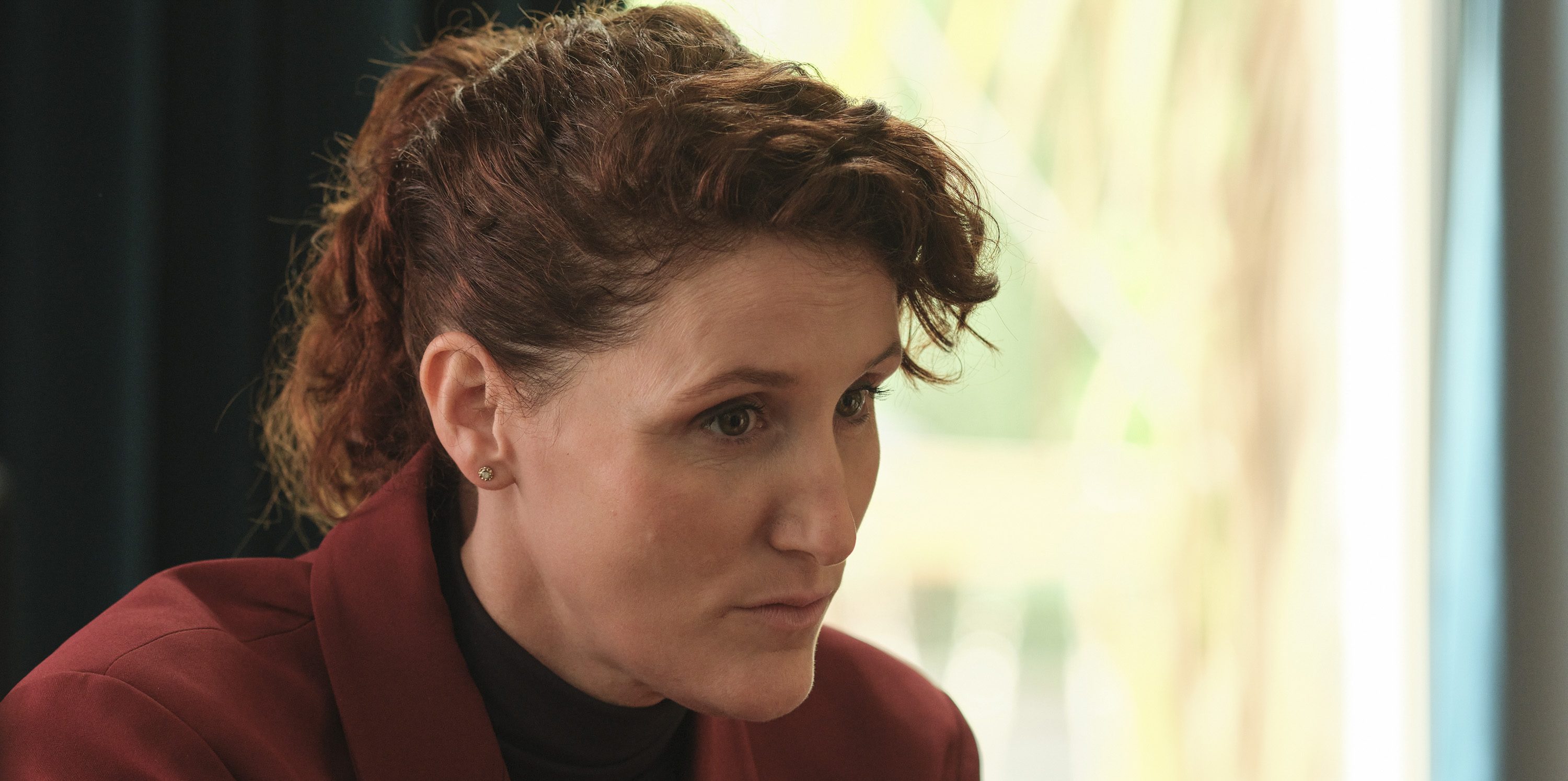
The timing of these messages—their tone—sends chills. Did the affair truly end, or did it simmer beneath the surface long enough to turn into something sinister? Elisa’s reaction is both fiery and cold. She sits across from Fred, livid but composed, her silence louder than any shouting match. The betrayal here isn’t just marital—it’s maternal. Her trust, her family’s safety, and their daughter’s life—now, it all feels compromised. When the police show blurry CCTV footage of Rebecca, Fred can’t confirm if the woman is Sarah. But the implication is terrifying: what if Rebecca and Sarah are the same person? Could this entire abduction be a long, calculated act of revenge?
The episode masterfully builds paranoia within not only the characters but also the viewer. Rebecca becomes a cipher. Nothing she has shared with Elisa adds up. Her husband, Jack? A ghost. The house she presents as hers? A holiday rental. Even Josie’s school transfer story seems like a well-crafted con. Is Rebecca merely a pawn hired by someone else? Or is she the mastermind all along? This layer of deception adds complexity to what initially appears like a straightforward missing child case. The threat isn’t just external—it may have been hiding in plain sight, seeded by secrets the family didn’t even know could come back to haunt them.
A Toy Left Behind and the Woman Who is Watching
Near the end of the episode, a tiny detail becomes a gut punch: Lucia’s beloved Minky Mouse toy is found at the supposed crime scene. It’s the kind of item only a parent can truly appreciate—small, soft, and constant. Elisa confirms that Lucia never spent a night away without it. The fact that it is left behind signals something deeply wrong. Lucia hasn’t even left willingly. She isn’t just taken—she has been deceived. The police now start working off a new theory: Rebecca isn’t acting alone. She may have been planted in the school for this very purpose.
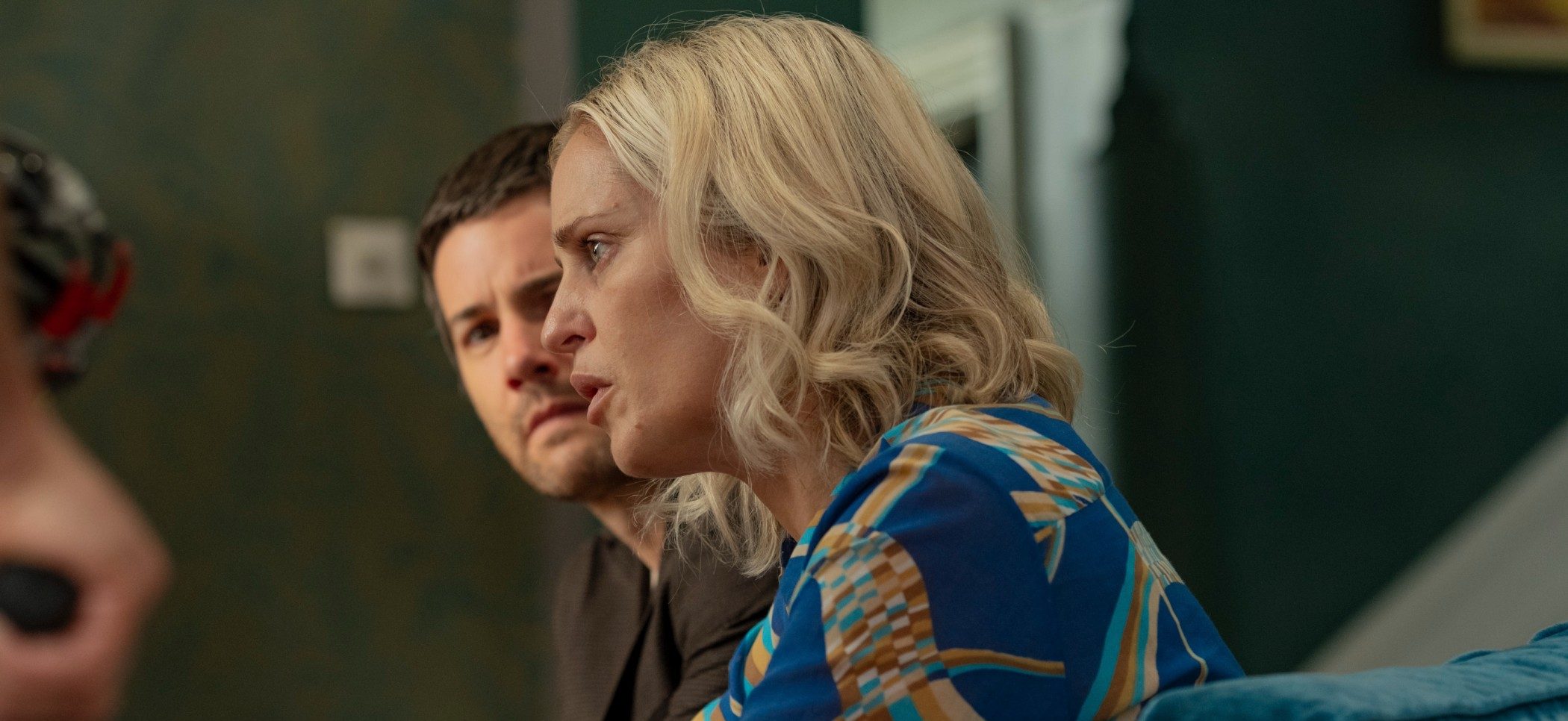
The emergency transfer of Josie, the quick friendship with Lucia, and the sleepover—all of it, meticulously planned. The idea that someone orchestrated this abduction so patiently is terrifying. And yet, it’s not the scariest part. The episode cuts back to Lucia inside the trunk—a visual echo of the first shot. Her voice trembles as she asks again, “Who are you?” There’s something deeply unsettling about how calmly she asks. Like she knows she’s in danger, but doesn’t quite grasp the magnitude yet. But then, the final twist: Rebecca watches Elisa’s emotional plea on TV somewhere in an undisclosed location. She stares, cold and composed. She’s not shown with Lucia. She’s not reaching out. She is just watching.
Why is Rebecca so calm? What does she want? Her presence adds a new, eerie layer to the unfolding mystery. Suddenly, the audience is not just desperate to find Lucia. They are desperate to understand Rebecca. It’s a chilling, brilliant ending to a pilot episode that promises far more than a standard thriller. ‘The Stolen Girl’ uses its characters’ emotional vulnerability, the intricacies of their relationships, and its sharp narrative pacing to leave viewers shaken and completely hooked. As Elisa continues to search for answers, we, like her, are left asking the same question: Who has taken Lucia and why?
Read More: Best Lifetime Thriller Movies

